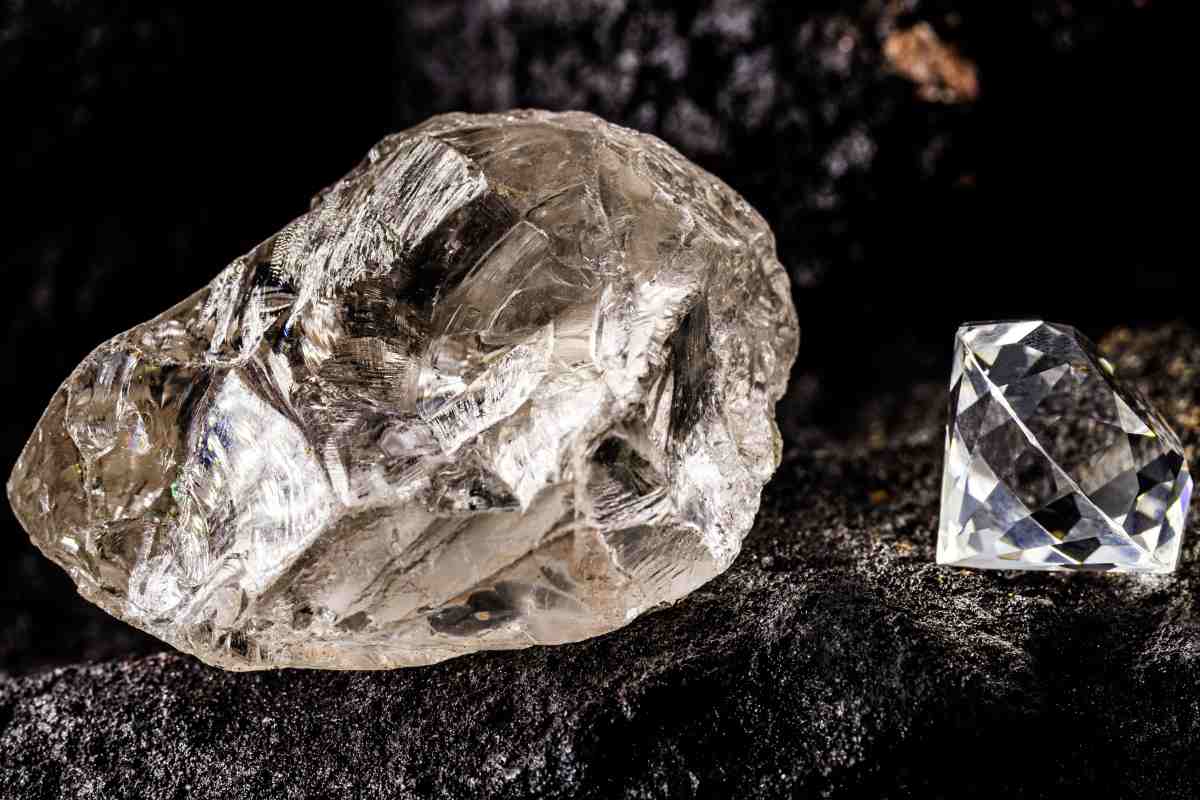When selecting the ideal Diamond for an engagement ring or other significant piece of jewelry, couples today are presented with a choice between conflict-free natural Diamonds and lab-grown alternatives. How do you know which is the best option for you?
Comparing the distinctions between natural versus lab-grown Diamonds allows you to make a well-informed decision that reflects your values and fits your budget. This article covers how conflict-free natural Diamonds compare to their lab-grown counterparts.
Understanding Conflict-Free Natural Diamonds
Conflict-free natural Diamonds are stones that have been sourced and traded without funding armed conflict or human rights abuses. These Diamonds are certified through established international systems designed to eliminate unethical practices from the Diamond supply chain.
The basis for certifying Diamonds as conflict-free is rooted in the Kimberley Process Certification Scheme (KPCS). This internationally recognized, joint-government certification system enforces comprehensive requirements for its participants, guaranteeing that shipments of rough Diamonds are certified as “conflict-free” and preventing conflict Diamonds from entering legitimate commerce.
The Clean Diamond Trade Act formalized U.S. participation in the KPCS and currently, 99% of Diamonds available in the market are certified as conflict-free. Many reputable jewelers go beyond the minimum Kimberley Process requirements with additional certifications that help certify your jewelry meets fair wage, ethical labor, and environmental responsibility practices.
Lab-Grown Diamonds: A Modern Alternative
Lab-grown Diamonds are produced within controlled laboratory settings through sophisticated technological methods that emulate the natural formation of Diamonds. Two main techniques are used to create lab-grown Diamonds: High Pressure High Temperature (HPHT) and Chemical Vapor Deposition (CVD). Both methods produce authentic Diamonds that are chemically and physically indistinguishable from natural stones.
Lab-grown Diamonds can sell for around one-tenth the price of a comparable natural Diamond. This significant price difference often makes lab-grown Diamond rings more accessible to budget-conscious consumers.
However, production location significantly impacts the environmental footprint of lab-grown Diamonds. Over 60% of lab-grown Diamonds are produced in China and India, where 63% and 74%, respectively, of grid electricity is produced using coal.
Environmental Impact Comparison
The environmental considerations between natural and lab-grown Diamonds present a nuanced picture that depends heavily on production methods and energy sources.
Traditional Diamond mining has environmental consequences to consider, such as land disturbance and energy usage. However, many modern mining operations have implemented sustainable practices and rehabilitation programs to minimize their ecological footprint.
The environmental effects of lab-grown Diamonds can differ significantly depending on the energy sources utilized during their production. However, lab Diamonds are often created with vast amounts of fossil fuels, particularly since most production occurs in regions where coal-powered electricity dominates the energy grid.
Value and Quality Considerations
Natural Diamonds have demonstrated value retention over decades, with rare and exceptional stones often appreciating. The finite nature of natural Diamond deposits contributes to their scarcity and long-term value proposition. Consumer demand for natural Diamonds remains strong in many markets, particularly for significant purchases like engagement rings.
Lab-grown Diamond prices have decreased substantially as production has scaled up and technology has improved. While this makes them more accessible initially, it also means they typically do not retain their purchase value in the same way as natural Diamonds.
Both conflict-free natural and lab-grown Diamonds can achieve exceptional quality grades across all the traditional “4 Cs”: cut, color, clarity, and carat weight. Professional institutes like the Gemological Institute of America (GIA) grade both types of Diamonds using identical standards, though lab-grown Diamonds receive separate grading reports that identify their laboratory origin.
Making Your Decision
When selecting between conflict-free natural Diamonds and lab-grown alternatives, consider these practical factors:
- Personal values and significance: Some couples find meaning in the ancient natural formation of their Diamond, while others prefer the modern innovation and transparency of lab-grown alternatives.
- Budget priorities: Lab-grown Diamonds allow larger stones or higher quality grades within the same budget, while natural Diamonds may retain more purchase value over time.
- Long-term intentions: Consider whether you view your Diamond as a potential future heirloom or investment.
- Environmental concerns: Both options have environmental considerations that vary based on sourcing and production methods.
Regardless of which type of Diamond you choose, working with a knowledgeable, certified gemologist ensures that you receive accurate information about your Diamond’s characteristics and value. A reputable jeweler will present both options objectively, helping you understand the trade-offs without pushing you toward a particular choice based solely on profit margins.
Trust Colonial Jewelers for Your Diamond Purchase
When you’re ready to make the choice between purchasing a lab-grown or conflict-free natural Diamond, Colonial Jewelers is here to help. We bring over 77 years of expertise to guide you through the process and assist you in making an informed decision. Every Diamond in our collection, whether natural or lab-grown, is meticulously chosen by our certified GIA gemologists, guaranteeing you exceptional quality and value.
We believe in providing complete transparency about Diamond origins, certification, and characteristics so you can make a confident decision that reflects your values and preferences. Our commitment to conflict-free sourcing means every natural Diamond meets the highest ethical standards, while our lab-grown options come from verified, responsible producers.
Visit our Frederick showroom to see and compare both conflict-free natural and lab-grown Diamonds in person. Our consultative approach focuses on honest guidance to help you find the perfect Diamond for your special moment without any pressure. Plus, every engagement ring includes our exclusive lifetime warranty, protecting your investment for generations to come.
Call Colonial Jewelers at (301) 663-9252, contact us online, or visit us in Frederick, Maryland, where four generations of expertise await to help you choose the Diamond that’s right for you.
